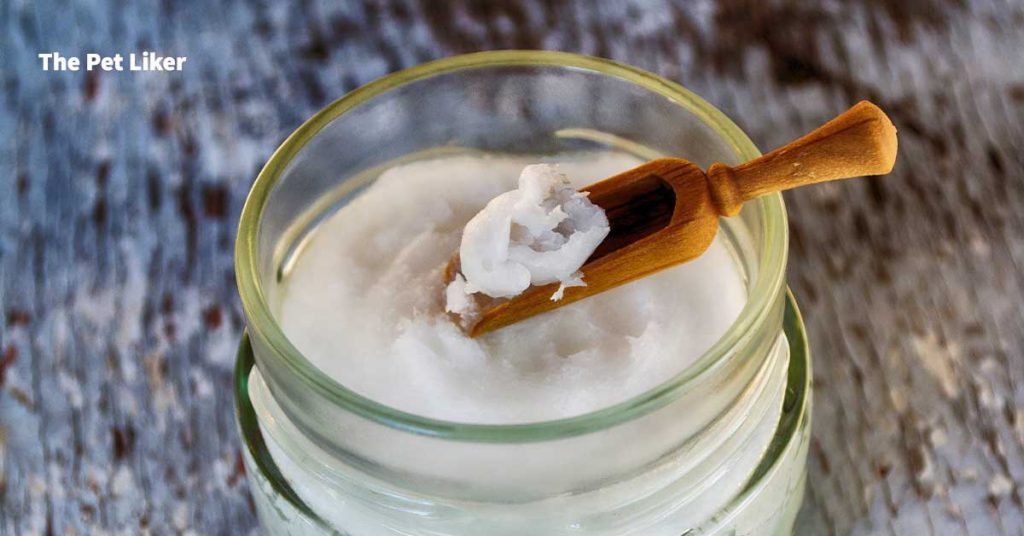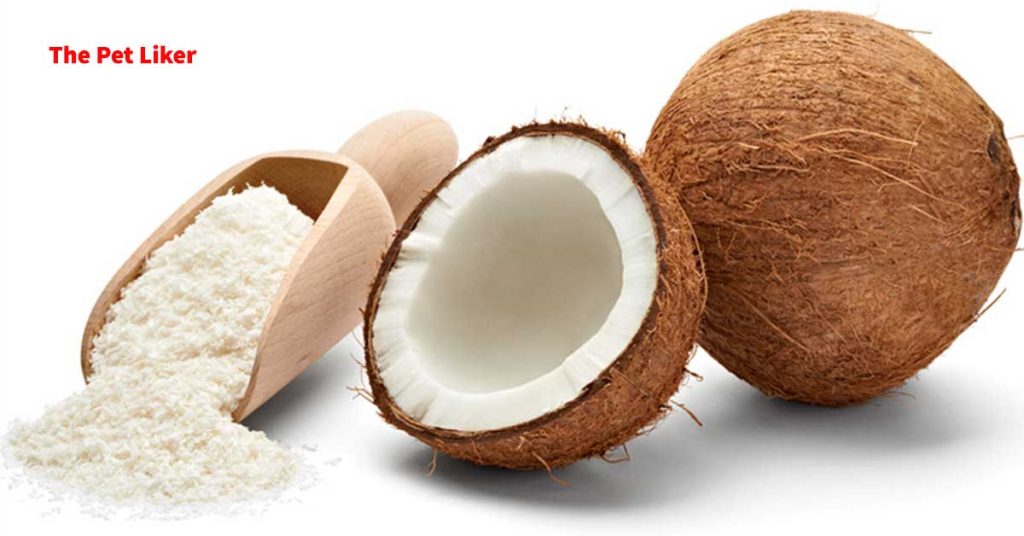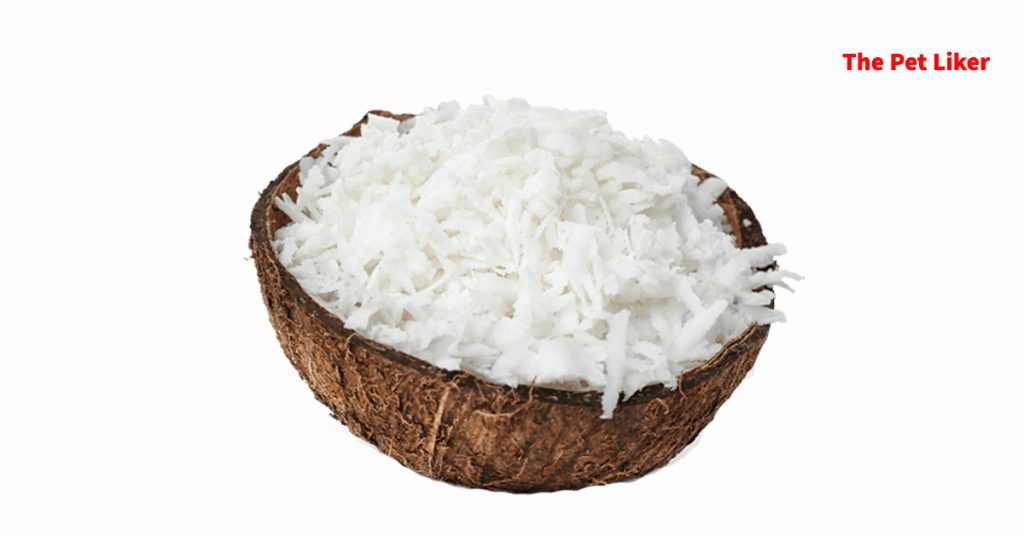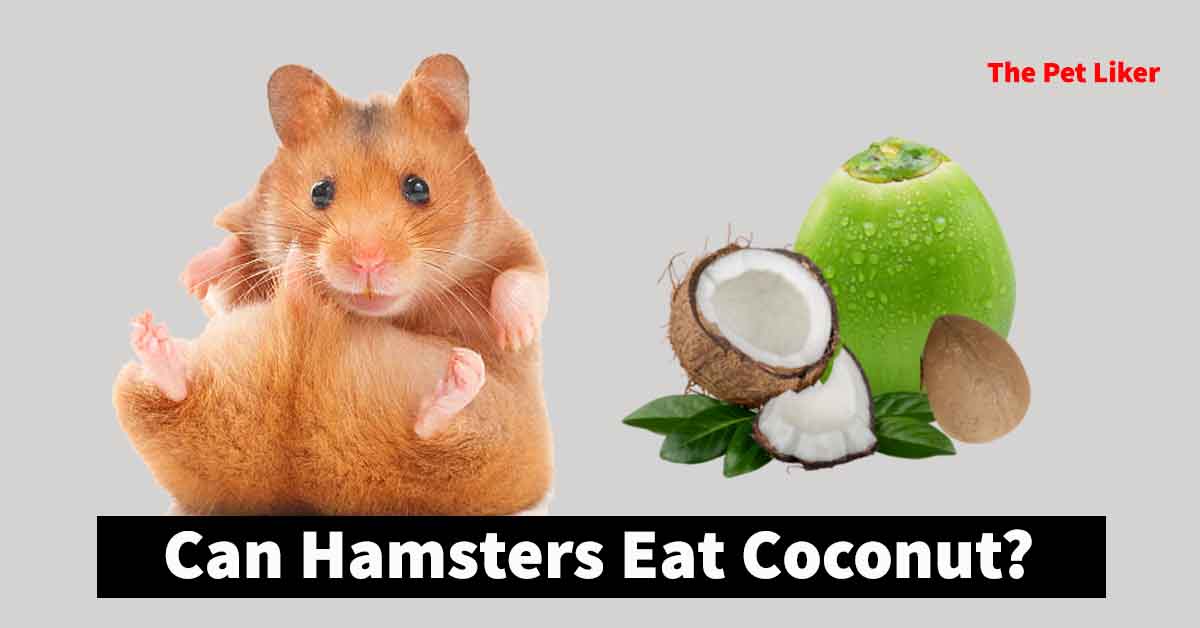As a hamster owner, you may be wondering if “can hamsters eat coconut?” While hamsters are omnivores and can eat a variety of foods, it’s important to know which ones are safe and healthy for them.
In this article, we’ll take a closer look at whether hamsters can eat coconut, its nutritional value, and its potential benefits and risks.
So, let’s dive in and find out if coconut is a suitable addition to your hamster’s diet!
Can Hamsters Eat Coconut?
Coconut is a tropical fruit that comes from the coconut palm tree. It is a versatile and nutritious food that is used in a variety of ways, including in cooking, baking, and cosmetics.
Hamsters can eat coconut in moderation. Coconut is a nutritious and tasty treat that contains healthy fats, fiber, and essential minerals such as iron, potassium, and copper.
It’s important to note that coconut should only be given as an occasional treat and in small amounts. Excessive consumption of coconut can lead to digestive issues such as diarrhea and upset stomach.
It’s also important to avoid giving your hamster any sweetened or flavored coconut products, as they often contain added sugars and preservatives that can be harmful to your pet.
Overall, coconut can be a safe and healthy addition to your hamster’s diet, but it should always be given in moderation and as part of a balanced and varied diet.
Is Coconut Safe For Hamsters?
Yes, coconut is generally safe for hamsters to eat in moderation. Coconut contains healthy fats, fiber, and essential minerals such as iron, potassium, and copper, which can provide some nutritional benefits for your pet.
It’s important to remember that hamsters are small animals with delicate digestive systems, and introducing any new food to their diet should be done gradually and in small quantities.
It’s also important to note that while coconut is generally safe for hamsters, some individual hamsters may have sensitivities or allergies to it.
Can Hamsters Eat Coconut Oil?

While coconut oil is safe for human consumption, it is not recommended to feed hamsters.
Hamsters are small animals with delicate digestive systems, and consuming large amounts of coconut oil can lead to digestive upset, diarrhea, and even obesity.
Coconut oil is very high in fat, and too much fat in a hamster’s diet can cause health problems such as fatty liver disease.
Overall, it’s best to avoid feeding your hamster coconut oil and stick to safer and healthier treat options such as small amounts of fresh fruits and vegetables, plain cooked chicken or boiled egg, and specially formulated hamster treats from a pet store.
Can Hamsters Eat Coconut Flour?

While coconut flour is not toxic to hamsters, it is not recommended to feed it to them. Coconut flour is a high-fiber, low-carbohydrate flour that is commonly used in baking for humans.
Hamsters have different dietary needs than humans and require a diet that is high in protein and fiber, and low in fat and carbohydrates.
Coconut flour is high in carbohydrates and low in protein, which makes it an inappropriate food for hamsters.
Feeding your hamster coconut flour can lead to digestive issues such as bloating, constipation, and diarrhea.
Can Hamsters Eat Coconut Flakes?

Yes, hamsters can eat coconut flakes in moderation. Coconut flakes are a tasty and nutritious treat that contains healthy fats, fiber, and essential minerals such as iron, potassium, and copper.
It’s important to note that coconut flakes should only be given as an occasional treat and in small amounts. Excessive consumption of coconut flakes can lead to digestive issues such as diarrhea and upset stomach.
Benefits ✅
Coconut has several potential health benefits for hamsters, including:
- Source of healthy fats: Coconut is high in healthy fats, particularly medium-chain triglycerides (MCTs), which can be beneficial for hamsters’ overall health.
- Antimicrobial properties: Coconut contains lauric acid, which has antimicrobial properties that can help fight off harmful bacteria and viruses in hamsters.
- Rich in vitamins and minerals: Coconut is a good source of vitamins and minerals, including vitamin C, potassium, and magnesium, which can help support hamsters’ overall health and well-being.
- Hydrating properties: Coconut water is a natural and hydrating drink that can help replenish fluids and electrolytes in hamsters, especially during hot weather or after exercise.
- Anti-inflammatory properties: Coconut contains compounds that have anti-inflammatory properties, which can help reduce inflammation and promote healing in hamsters.
Risks ❌
While coconut can provide some health benefits for hamsters, there are also some potential risks to consider, including:
- High in fat and calories: Coconut is high in fat and calories, which can contribute to obesity and other health problems in hamsters if fed in excessive amounts.
- Digestive issues: Coconut can be difficult to digest for some hamsters, especially if they are not used to eating it. Overfeeding or sudden introduction of coconut to a hamster’s diet can lead to digestive upset, such as diarrhea and bloating.
- Allergies: Some hamsters may be allergic to coconut, which can cause symptoms such as itching, swelling, and respiratory distress.
- Mold and bacterial contamination: Fresh coconut can sometimes be contaminated with mold or harmful bacteria, which can cause illness in hamsters if consumed.
Servings 🍽️
Here are some tips on how to serve coconut to your hamster:
- Offer small amounts: Only offer a small amount of plain and unsweetened coconut to your hamster, as it is high in fat and calories. A small piece or a few flakes of coconut is enough for a treat.
- Cut into small pieces: Cut the coconut meat into small pieces or shred the flakes into smaller bits to avoid the risk of choking.
- Introduce gradually: Introduce coconut to your hamster’s diet gradually and in small amounts, to avoid any digestive upset. Start by offering a small piece or a few flakes and see how your hamster reacts.
- Choose fresh and unsweetened coconut: Choose fresh coconut or unsweetened dried coconut flakes, without any added sugars or preservatives.
- Avoid coconut milk: Coconut milk is not recommended for hamsters as it is high in fat and calories and may contain additives such as sugars or flavorings.
- Offer coconut water: Fresh coconut water is a natural and hydrating drink that can be offered to hamsters in small amounts as a treat.
Wrapping Up
At last, we hope that you are no more concerned about “Can hamsters eat Coconut?” Coconut is a tropical fruit that can be a nutritious and delicious treat for your hamster.
Fresh or dried unsweetened coconut meat, plain and unsweetened coconut flakes and fresh coconut water can be offered to your hamster in small amounts as a healthy treat.
Coconut oil can also be added to your hamster’s food as a source of healthy fat, but it should be introduced gradually and in moderation.
As with any new food, it’s important to introduce coconut to your hamster’s diet gradually and in small amounts and to watch for any signs of digestive upset or allergies.
If you have any concerns about your hamster’s diet or health, it’s always best to consult with a veterinarian.
Thank you so much for reading! Always stay with The pet liker!! Wish a joyful day for your pet!!!
FAQS
Here are some frequently asked questions about feeding coconut to hamsters:
Can hamsters eat sweetened coconut?
No, hamsters should not eat sweetened coconut as it contains added sugars and preservatives that can be harmful to their health. Only plain and unsweetened coconut should be offered to hamsters as a treat.
Can hamsters eat coconut milk?
Coconut milk is not recommended for hamsters as it is high in fat and calories, and may contain additives such as sugars or flavorings. Stick to plain and unsweetened coconut meat or flakes as a healthier treat option.
How often can hamsters eat coconut?
Hamsters can eat coconut as an occasional treat, but it should not be a regular part of their diet. Only small amounts of plain and unsweetened coconut should be offered to hamsters, and it’s important to introduce it gradually and in moderation to avoid digestive upset.
Can hamsters eat coconut shells?
No, hamsters should not eat coconut shells as they are too hard and difficult to digest. Only the flesh and water of the coconut should be offered to hamsters in small amounts as a treat.
Can hamsters eat coconut every day?
No, hamsters should not eat coconut every day as it is high in fat and calories. The coconut should only be offered as an occasional treat in small amounts to avoid any negative health effects.

